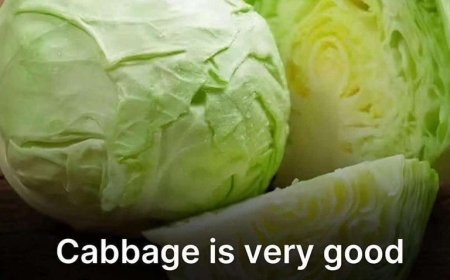The 4 Types of People Who Shouldn’t Eat Cabbage
Cabbage is one of the most versatile and affordable vegetables in the world. It’s rich in vitamin C, vitamin K, fiber, and antioxidants, making it a great choice for heart health, immunity, and digestion. However, while most people can enjoy it safely, there are certain cases where cabbage may actually do more harm than good. If you fall into one of the categories below, you should be cautious about how much cabbage you eat and how you prepare it.
1.
1. People with Thyroid Disorders
Cabbage belongs to the cruciferous vegetable family, along with broccoli, cauliflower, and kale. These vegetables contain a natural compound called goitrin, which can interfere with the production of thyroid hormones. Over time, high consumption of raw cabbage may lead to thyroid enlargement (goiter) or worsen existing hypothyroidism.
Who should be careful:
People diagnosed with hypothyroidism, iodine deficiency, or any thyroid imbalance should monitor their intake of raw cabbage. Cooking the cabbage reduces the goitrin content, making it less likely to cause problems.
Helpful tip:
Soak cabbage leaves in salted water for 10–15 minutes and then cook or finely chop them. Lightly steaming or stir-frying the cabbage can neutralize most of the goitrogenic compounds while preserving nutrients.
2. People with Fragile Digestive Systems
Cabbage is high in fiber and sulfur compounds. While these support digestion and help relieve constipation, they can also cause bloating, gas, and discomfort in people with sensitive intestines or irritable bowel syndrome (IBS). Its fibrous texture can act like a natural “broom” in the intestines—great for detoxing, but rough for already-inflamed digestive tracts.
Who
should be careful:
People suffering from gastritis, IBS, ulcerative colitis, or chronic diarrhea should avoid raw cabbage. Even cooked cabbage can sometimes trigger cramps or excessive gas in sensitive individuals.
Better alternatives:
Instead of cabbage, try steamed zucchini, cooked carrots, pumpkin, or peeled potatoes. These are gentle on the stomach yet still provide fiber and nutrients.
3. People Taking Blood-Thinning Medications
Cabbage is naturally high in vitamin K, an essential nutrient for proper blood clotting. However, if you are taking blood thinners like warfarin (Coumadin), eating large amounts of cabbage can reduce the medication’s effectiveness and increase the risk of blood clots.
Who should be careful:
Anyone taking anticoagulants or with a history of stroke, deep vein thrombosis (DVT), or heart valve issues should maintain a consistent, moderate intake of vitamin K–rich foods and avoid sudden increases.
Tip:
You don’t need to eliminate cabbage entirely, but aim for balance. Discuss your diet with your doctor to find a safe serving size that keeps your vitamin K intake steady.
4. People with Kidney Problems
Cabbage contains oxalates and potassium, two compounds that may build up in the blood when the kidneys aren’t functioning properly. For those with chronic kidney disease (CKD), eating too much cabbage—especially raw—can lead to electrolyte imbalances or increase the workload on the kidneys.
Who should be careful:
Patients with kidney failure, those undergoing dialysis, or individuals on potassium-restricted diets should eat cabbage in moderation and avoid fermented versions like Tap the p.hoto to v.iew the full r.ecipe.



























